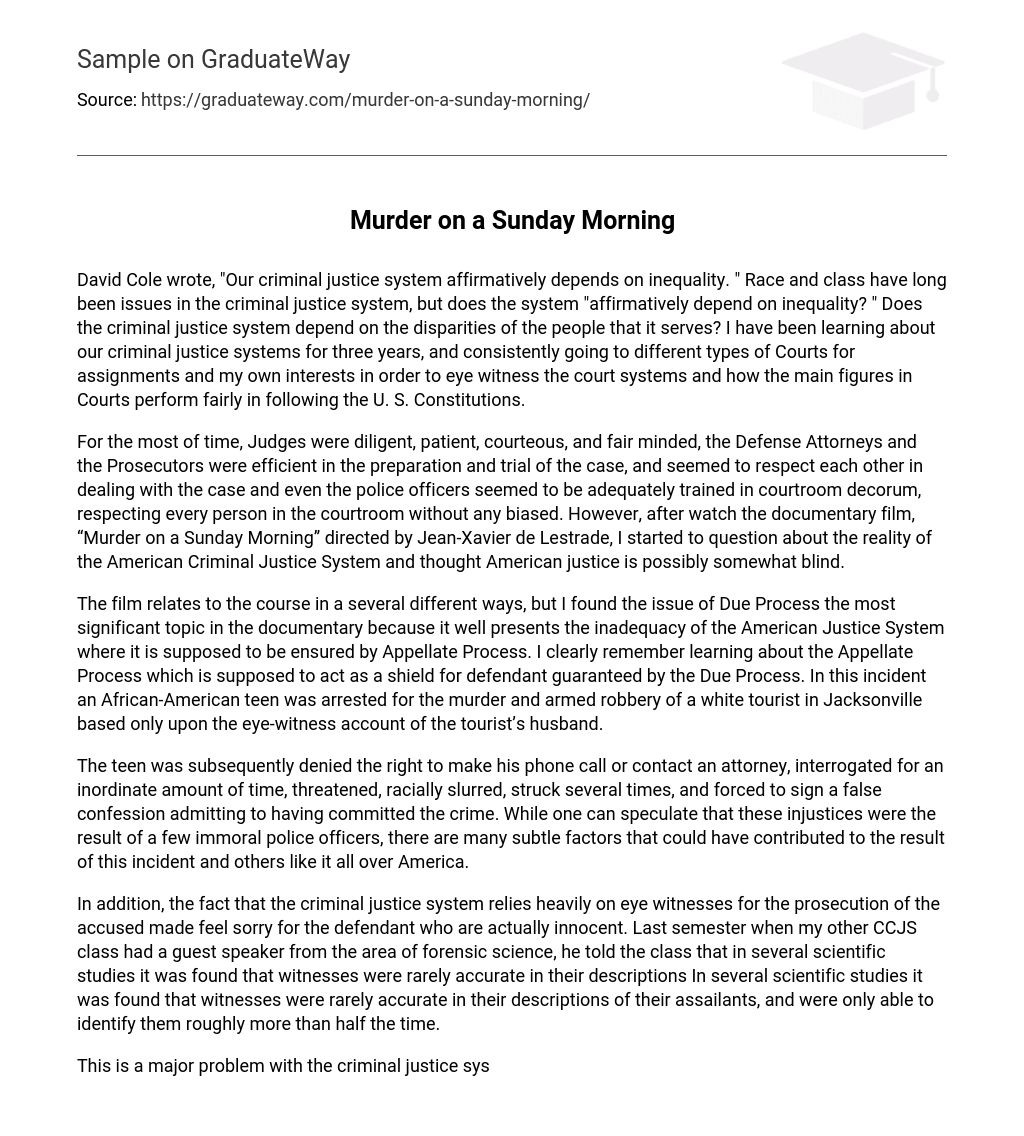David Cole asserts that the criminal justice system depends on inequality, particularly impacted by race and class. The essential inquiry is whether these disparities are indispensable for the system to function efficiently. Throughout my examination of the criminal justice system over three years, I have visited different courts and observed how those participating endeavor to guarantee fairness in alignment with the U.S. Constitution.
As a whole, the American Criminal Justice System is known for judges who possess qualities like diligence, patience, courtesy, and fairness. Defense attorneys and prosecutors both exhibit efficient case preparation and presentation while maintaining respect for one another. Moreover, police officers demonstrate proper training in upholding courtroom decorum and treating everyone impartially. Nevertheless, Jean-Xavier de Lestrade’s documentary film “Murder on a Sunday Morning” has made me reconsider my view of the justice system by raising doubts about potential flaws or biases within it.
The film highlights multiple connections to the course, but the issue of Due Process stands out as the most significant topic. It effectively exposes flaws in the American Justice System, particularly concerning the Appellate Process designed to protect defendants. I remember studying how the Appellate Process is a crucial part of ensuring Due Process and safeguarding defendants’ rights. The documentary portrays a specific case where an African-American teenager was arrested for killing and robbing a white tourist in Jacksonville solely based on the testimony provided by the tourist’s husband.
The teenager was denied the chance to communicate with or get legal counsel. He went through intense questioning, received threats and racial slurs, and experienced multiple physical assaults. Additionally, he was forced to sign a false confession accepting responsibility for the crime. It’s possible that a small number of corrupt police officers were responsible for these injustices. However, there are several underlying factors that may have influenced the result of this case and similar incidents throughout the United States.
Additionally, eyewitnesses are vital in the criminal justice system when it comes to prosecuting defendants. Nevertheless, this heavy dependence on eyewitness testimony can lead to false accusations and sympathy towards innocent people. In a previous semester, an expert guest speaker from my other CCJS class, who specializes in forensic science, disclosed that several scientific studies have demonstrated that witnesses frequently give inaccurate descriptions of their attackers. These studies suggest that witnesses were only able to accurately identify their assailants slightly more than 50% of the time.
One significant issue in the criminal justice system is the wrongful conviction of innocent individuals due to unreliable witness testimonies. A more comprehensive police investigation could have resulted in a guilty verdict based on the witness’s statement. However, relying solely on forensic science instead of witnesses may help reduce these errors. Nevertheless, this approach has disadvantages including high costs associated with forensic procedures and potential confusion among juries.





